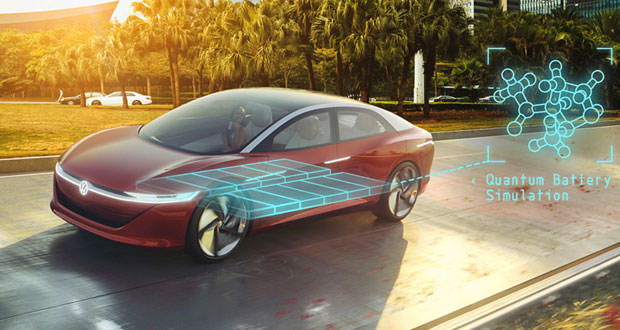Volkswagen and Google for the quantum simulation on batteries for electric vehicles
Wolfsburg’s house announces important steps forward in the simulation of chemical compositions for batteries for electric vehicles thanks to the help of quantisitic computation.
A bit out of necessity, a bit by virtue and a little ‘to erase the ugly stain linked to the episode of ” dieselgate “, Volkswagen has for some time shown a particular attention towards hybrid and electric propulsion and technological research connected. The evolution of the batteries is a key factor for vehicles with hybrid or electric engines, as the progress on energy efficiency will allow a wider diffusion of this type of means of transport.
The house in Wolfsburg has announced in this regard some important results obtained during the research on batteries, thanks to the use of quantum systems.
” We are focusing on the modernization of IT systems in the Group, the goal is to intensify the digitization of work processes – to make them simpler, safer and more efficient and to support new business models, which is why we are combining our key activities with the introduction of key technologies specific to Volkswagen. All this includes the Internet of Things, artificial intelligence and quantum computing, ” said Martin Hofmann, CIO of the Volkswagen Group.
Using new-concept algorithms, the Volkswagen research team laid the groundwork for simulating and optimizing the chemical structure of high-performance electric vehicle batteries. The simulation was conducted using a quantum system in collaboration with Google and D-Wave.
In the long run, quantum algorithms can simulate the chemical composition of a battery based on different criteria such as weight reduction, maximum power density or cell assembly, and offer a design that can be used directly for production.
This would significantly help to speed up the battery development process, which has so far proved to be a long, laborious and burdensome process. The ultimate goal is to develop a ” tailor-made battery ” that can be a sort of configurable project, to be quickly brought into production.
” We are working hard to develop the potential of quantum computing for Volkswagen. The simulation of electrochemical materials is an important project in this context. We are really doing a pioneering work in this field, and we are convinced that commercially available quantum computers will open previously unimaginable opportunities. We are now going to acquire the specific knowledge we need for this purpose ” commented Florian Neukart, scientific director of the Volkswagen CODE Lab in San Francisco.

